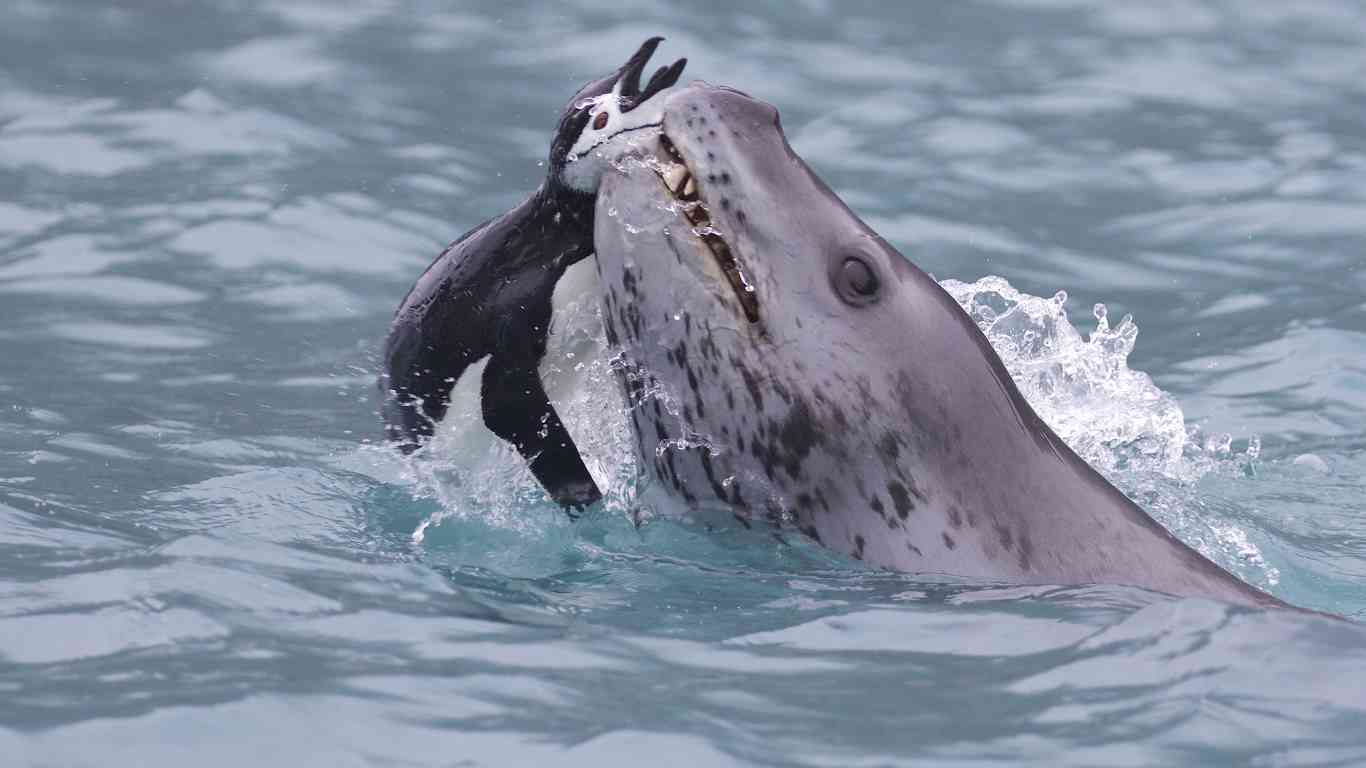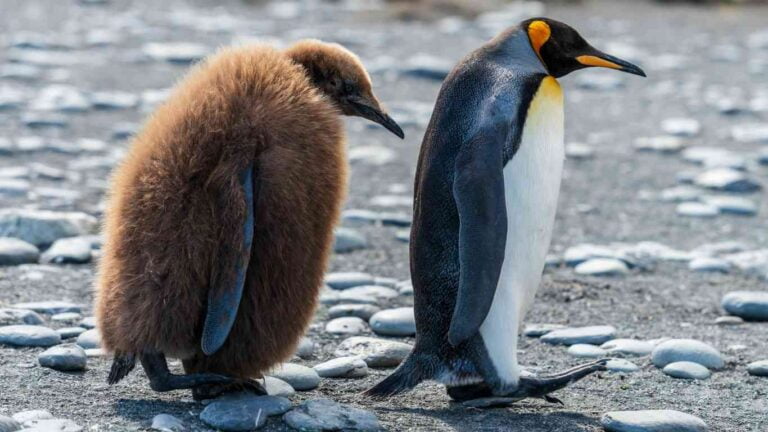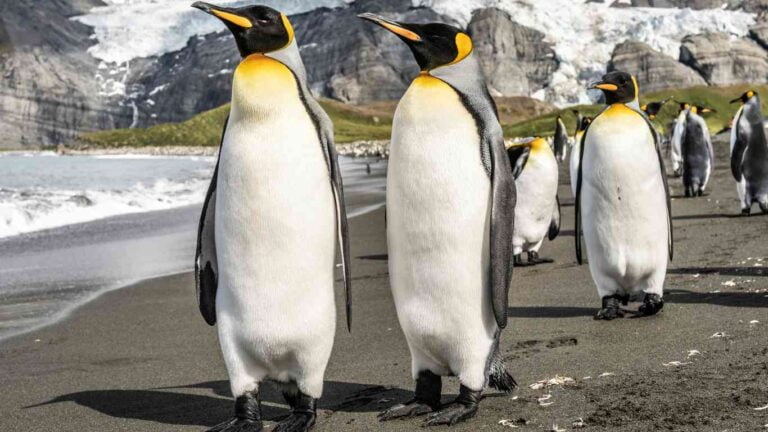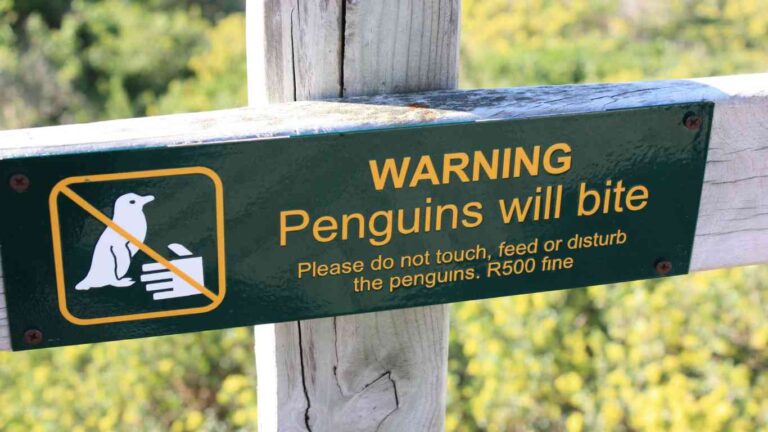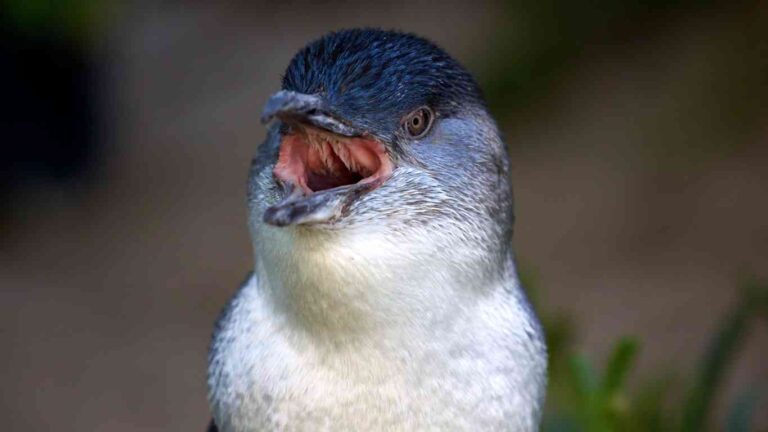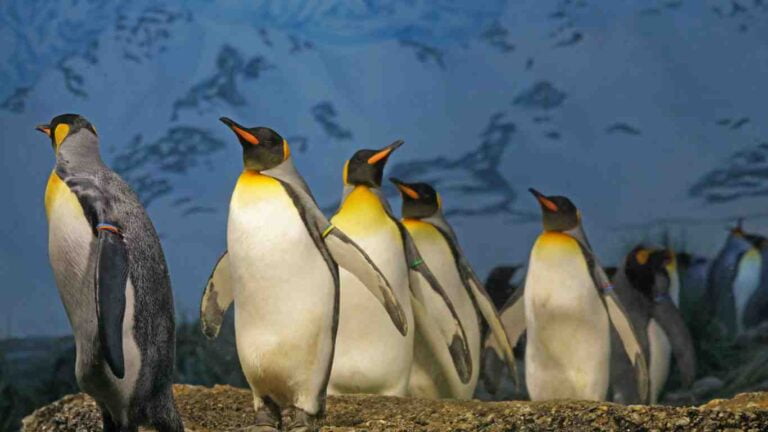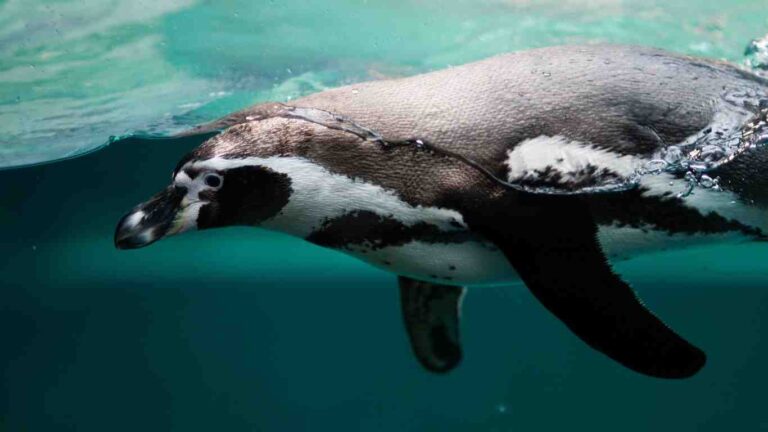What Animals Eat Penguins?
In the wild, penguins are far from being at the top of the food chain. As adored as they are by humans for their waddling gait and social behavior, they are equally targeted by several predators in their natural habitats.
Predation pressures are a constant reality for penguins, from before they hatch until their adult stages.
What Animals Eat Penguins?
The primary predators that eat of penguins are seals and orcas in the waters of Antarctica and the sub-Antarctic region.
Leopard seals are renowned penguin hunters, known for their powerful jaws and predatory tactics.
They use their speed and strength to overpower the penguins in the water, where they spend a significant portion of their lives.
Orcas, or killer whales, are apex predators that pose a significant threat to penguins when they are in the water.
Orcas also prey on penguins with their highly coordinated hunting tactics and incredible power.
In the harsh conditions of Antarctica, where penguins are most iconic, these seabirds face predation from the sea, land, and air.
The species that prey on penguins usually depend on the penguins’ geographic location.
Apart from the marine predators, penguins also face threats on land and from the air. Different types of birds of prey, such as skuas and giant petrels, target penguin chicks and eggs.
These birds can easily snatch away the young that are unprotected or stray from their parents. South Polar skua, which are known to attack weak or isolated individuals.
In some areas, other terrestrial predators like cats and rats that had been introduced to the natural environment of penguins.
They pose an additional risk, preying on eggs and chicks, hence disrupting the breeding success of penguin colonies.
The impact of predation on penguin species varies. In some habitats, predation is a key natural factor that can influence penguin population dynamics.
Predator-prey relationships are complex and essential to maintaining the health of marine ecological systems.
These interactions ensure energy transfer through the food web and help control penguin populations within the capacity of their environment.
What Eats Penguin Eggs?
Predatory birds such as skuas, petrels, and Antarctic giant petrels are known to eat penguin eggs. These birds often snatch them when the parents are, momentarily, not guarding the nest.
These bird species have honed their ability to navigate the penguin colonies with stealth and precision, often waiting for brief moments when eggs are unattended to make their move.
The impact of egg predation can have substantial repercussions on the population dynamics of penguin colonies.
On some coasts, mammalian predators like foxes and rats introduced by humans may also pose a threat to penguin eggs.
While adult penguins have to contend with underwater and aerial predators, their eggs and hatchlings are vulnerable as well to these predators.
What Eats Penguin Chicks?
Skuas and giant petrels eat penguin chicks. These birds are notorious for their predatory behavior around penguin colonies, pose significant threats to the chicks.
They even attack weak larger penguins and chicks, despite being smaller in size.
The chicks, reliant on their parents for warmth and protection, are particularly vulnerable during times when adult supervision wanes.
For young and inexperienced penguin chicks, life can be perilous with predators all around.
While they are guarded closely by their parents, predatory birds are quick to exploit any opportunity.
Final Thoughts
In summary, penguins have multiple natural predators. From the oceans’ apex predators such as orcas and seals to airborne threats like skuas and giant petrels, penguins face predation from various angles.
Human activities are intensifying the natural threats to penguins, highlighting the intricate relationship between ecosystems and human impact.
To safeguard penguins, it’s essential to take direct measures and manage their habitats to preserve ecological equilibrium.
(Featured image by Gregory “Slobirdr” Smith on Flickr is licensed under CC BY-SA 2.0 Deed)

